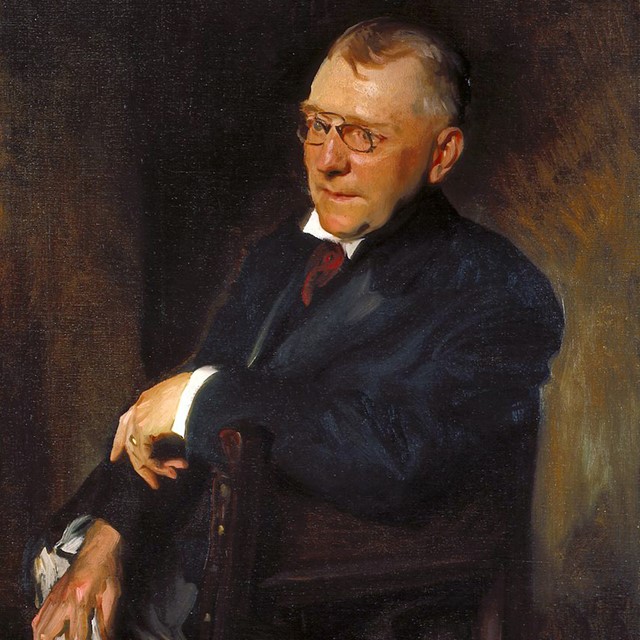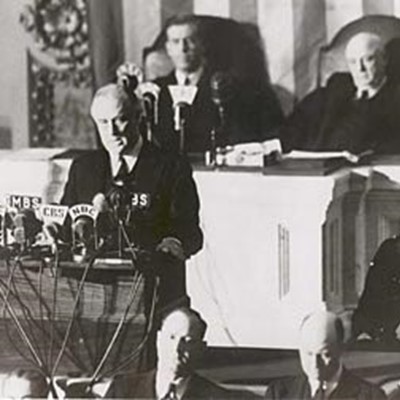
The Buckley School's founder believed all public speakers should hone their presentation skills by reading poetry out loud. We keep that worthwhile practice alive by including a poem in our magazine each month for you to read aloud. Above, a portrait of James Whitcomb Riley painted by John Singer Sergeant.
"He charmed audiences with his oratorical skills, and his imitation of rural Indiana dialects earned him the nickname 'Hoosier Poet.'"
– Poetry Foundation
One of the most popular poets of late 1800s and early 1900s was Indiana native James Whitcomb Riley. Riley won fame and riches, performing his poems on the lecture circuit and writing verse for children.
His success, though great, did not come easy. In his early years, his father urged him to abandon poetry. To earn money, young Riley worked a variety of jobs, painting billboards, selling Bibles, and finally landing work at a newspaper as a reporter, columnist, and poet.
His determination to write and publish his poems never seemed to wane, despite personal ups and downs, a struggle with alcohol use, and health problems in his later years.
President Benjamin Harris recommended Riley be named national poet laureate, though Congress did not act on the request. While some criticized the quality of his work, most of his contemporaries agreed he was America's best-loved poet.
 James Whitcomb Riley, known as the Children's Poet, poses with a group of children and his dog for a photo to be published in a book for Indiana's centennial anniversary.
James Whitcomb Riley, known as the Children's Poet, poses with a group of children and his dog for a photo to be published in a book for Indiana's centennial anniversary.
While much of his work is fun-loving, some of his writing hints at more serious themes.
Below, we provide one of those poems—which when read aloud feels almost like a tongue twister—a good workout for public speaking diction from a poet who was known for writing in the muddled dialect he associated with children.
Not Always Glad When We Smile
We are not always glad when we smile:
Though we wear a fair face and are gay,
And the world we deceive
May not ever believe
We could laugh in a happier way. -
Yet, down in the deeps of the soul,
Ofttimes, with our faces aglow,
There's an ache and a moan
That we know of alone,
And as only the hopeless may know.
We are not always glad when we smile, -
For the heart, in a tempest of pain,
May live in the guise
Of a smile in the eyes
As a rainbow may live in the rain;
And the stormiest night of our woe
May hang out a radiant star
Whose light in the sky
Of despair is a lie
As black as the thunder-clouds are.
We are not always glad when we smile! -
But the conscience is quick to record,
All the sorrow and sin
We are hiding within
Is plain in the sight of the Lord:
And ever, O ever, till pride
And evasion shall cease to defile
The sacred recess
Of the soul, we confess
We are not always glad when we smile.






